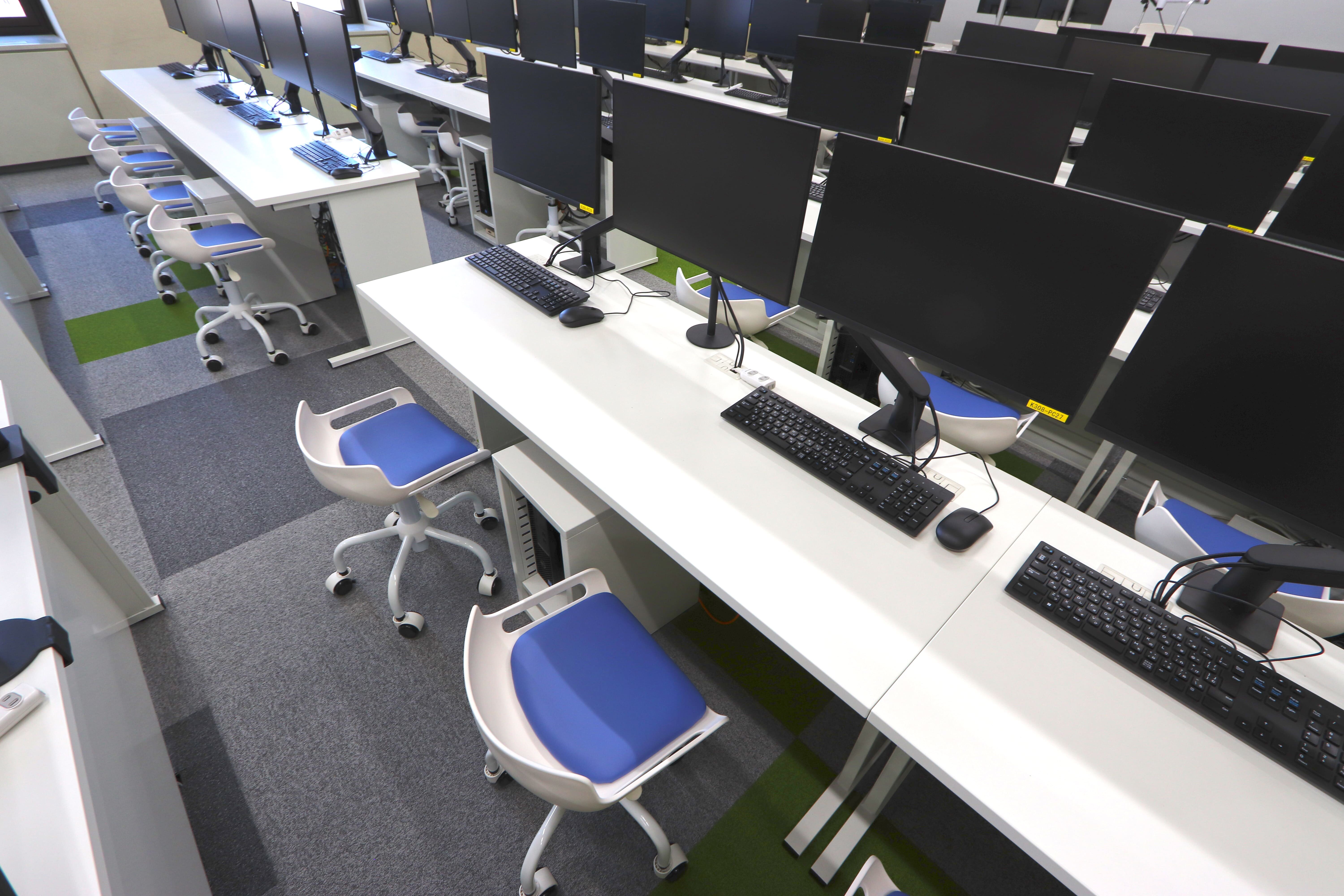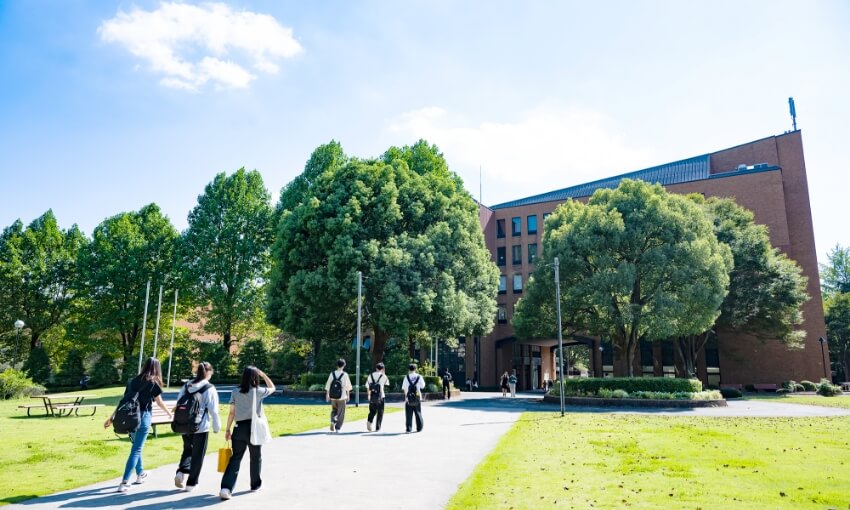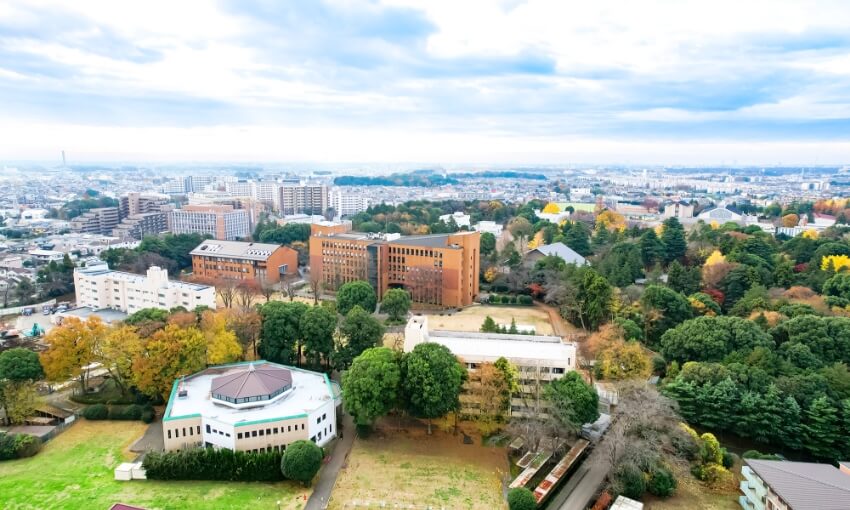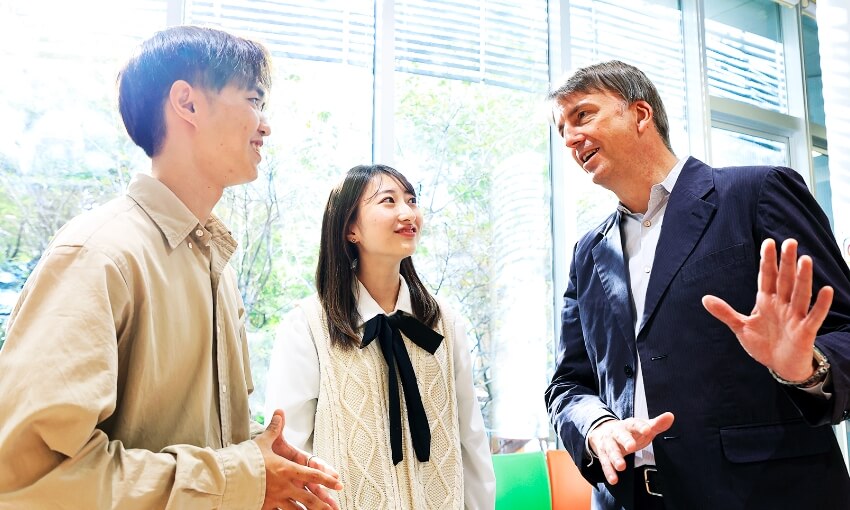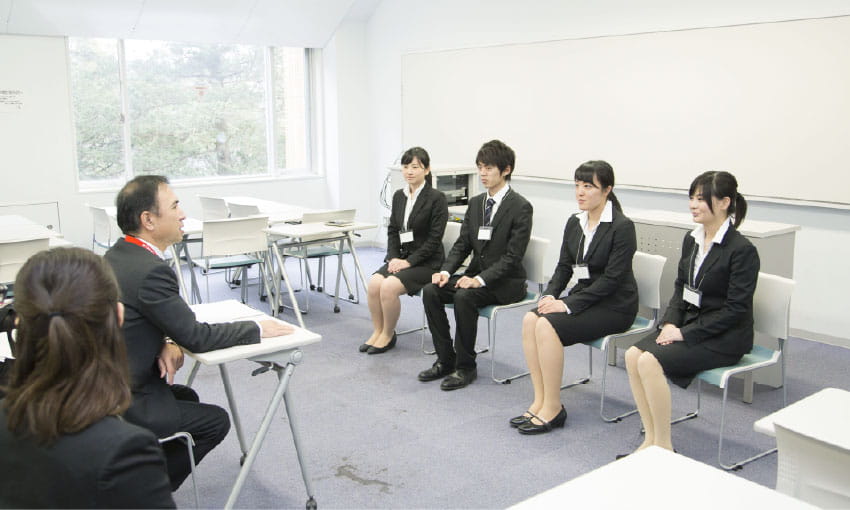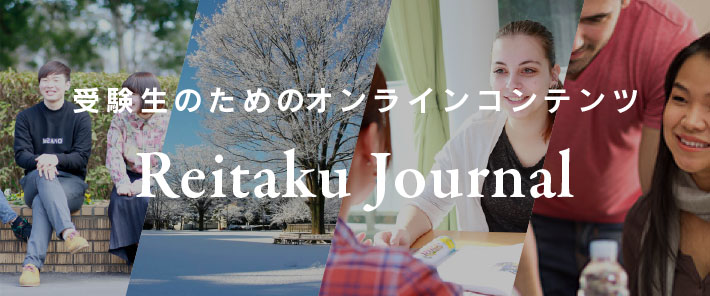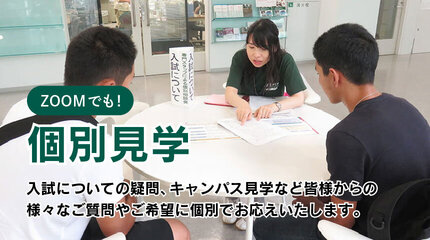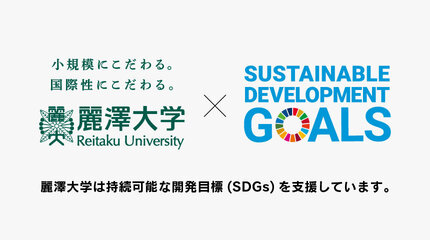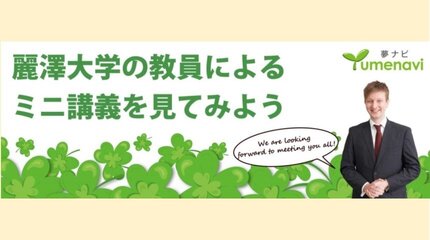Student LifeReitaku education Cultivating Independence
Learn from society and give back what you learn to society.
Acquire practical skills through a variety of PBL activities.
Students rushed out of campus
Opportunities to directly interact with society and the world.
The wide range of options available is also a major feature of our school.
PBL activities are carried out off-campus across all faculties from the first year.
Classes in collaboration with local communities and companies
Seminar activities have been passed down to student volunteers
Extracurricular activities and volunteering.
An opportunity to learn from the real world and give back to society
It's full.
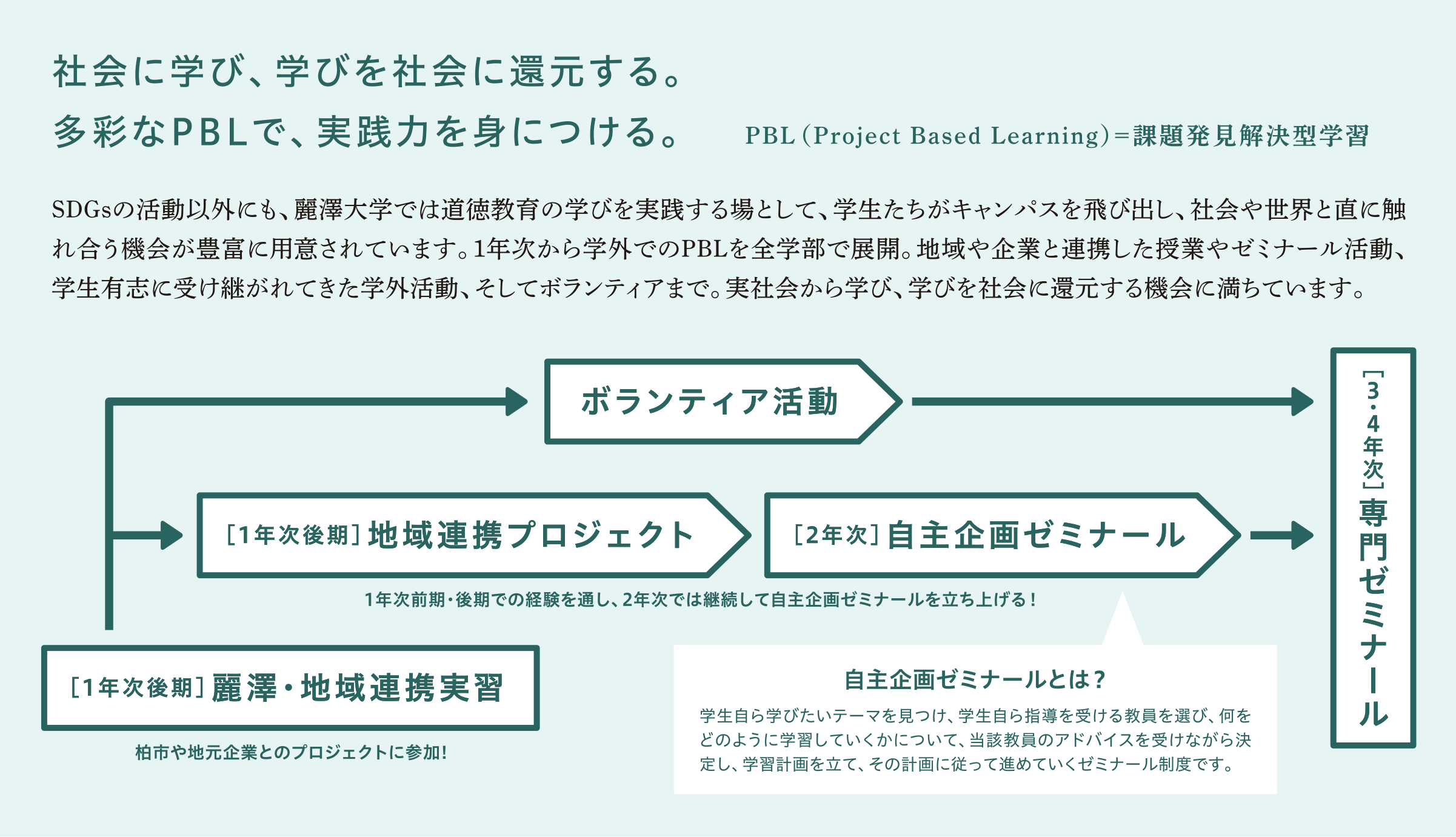
Self-planned seminar
This is a seminar system in which students find a topic they want to study, choose a professor to supervise them, decide what and how to study with the advice of that professor, make a study plan, and proceed according to that plan.
Be a Bridge!
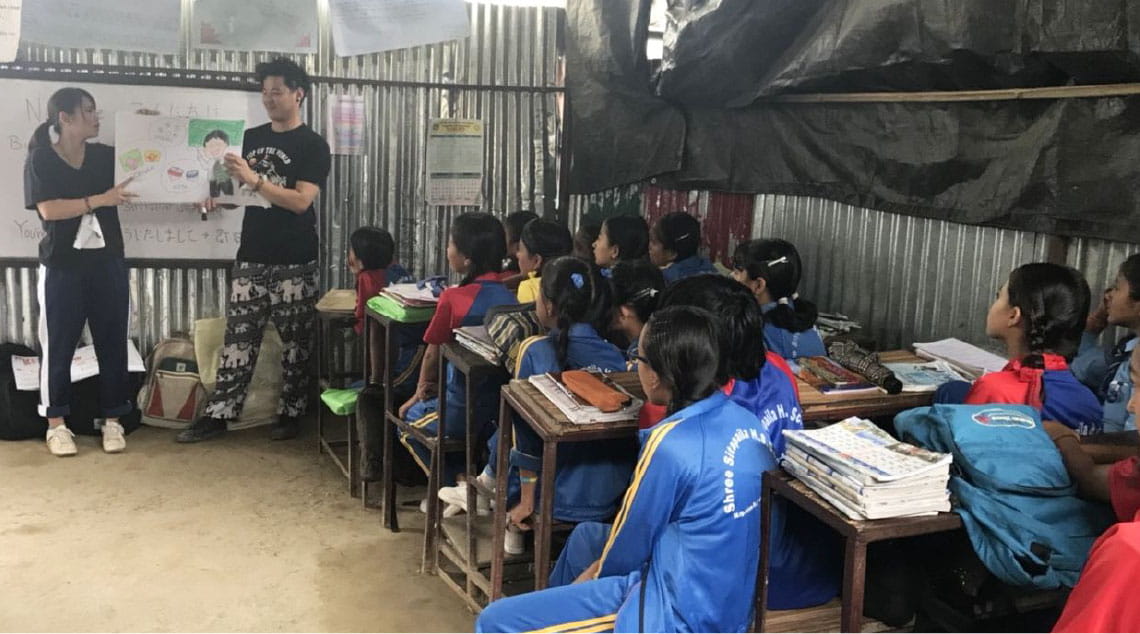
Based in Kathmandu, the capital of Nepal, the group is carrying out activities centered on "enlightenment on sanitation" to protect children's health. By introducing "cleaning activities," which are commonplace in Japanese school education, and creating trash bins to separate trash that is carelessly thrown away, the group aims to change the awareness of people living in Nepal by showing the good points of Japanese culture and customs.
Japanesia
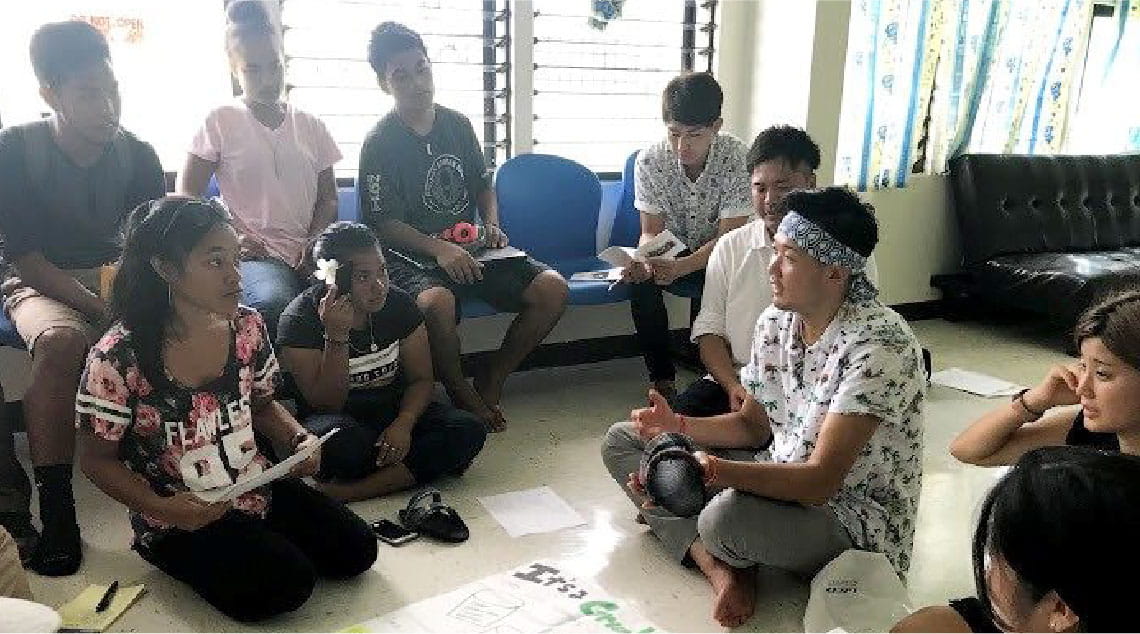
This group was formed by students who want to learn about international cooperation in a practical way. We are working with students from the College of Micronesia to carry out an environmental education project for children in the Pacific island nation of Micronesia. As representatives of Reitaku University, we plan to continue our activities to help children around the world understand the importance of environmental issues.
Plas+
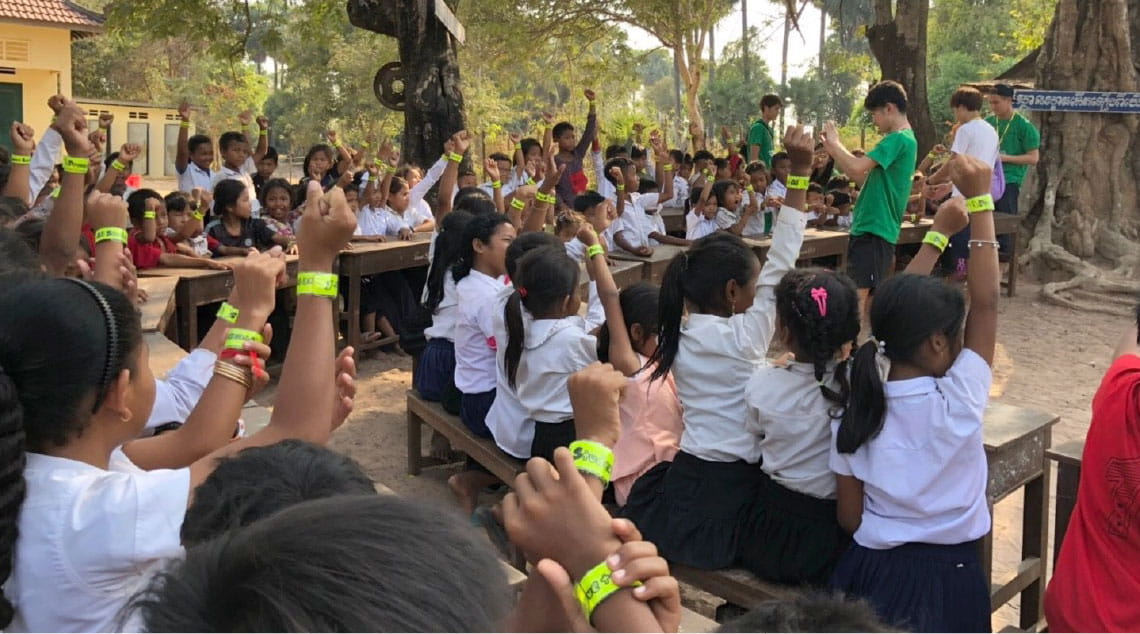
With the motto "Love for all children," this student group provides educational support mainly in Cambodia and the Philippines. In Cambodia, they are implementing a project focusing on road safety at elementary schools, and in the Philippines, they are currently developing a new project. They are proactively expanding the scope of their activities through activities such as street fundraising and crowdfunding.
Servant Leadership
Shift from "making others do it" to "doing it yourself" practice,
The track and field team is one step away from competing in the Hakone Ekiden.
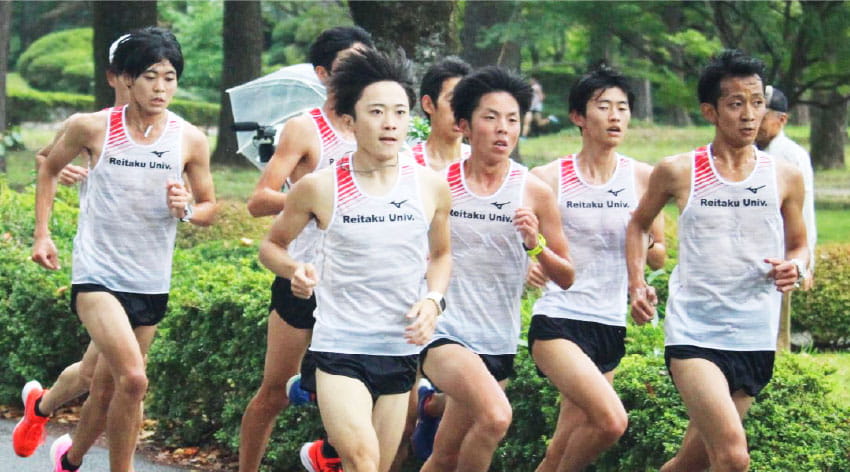
Tatsuya Yamakawa has been the coach of Reitaku University Track and Field Team since 2010, and was appointed as the head coach in April 2017. At the Hakone Ekiden qualifying round in October 2019, he led the team to a level where they were just one place away from qualifying for the finals.
The secret is a coaching method that motivates students and encourages them to think for themselves. This technique, technically known as "servant leadership," unleashed the power of the players. This is a truly remarkable example of progress that is characteristic of our university.
What is the "servant leadership" that Director Yamakawa has adopted?
It is a leadership philosophy based on the idea that "a leader first serves others and then leads them." We treat our subordinates and members with a sense of service, think about how to maximize the organization's capabilities, and strive to create an environment that allows this. In recent years, as the business environment has changed rapidly and diversity in human resources has become more common, "servant leadership," which is the polar opposite of the "dominant leadership" that was mainstream in Japan, has begun to attract attention.
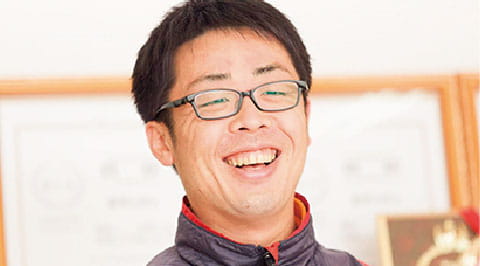
Track and Field Team DirectorTatsuya Yamakawa


Information Science Curriculum for the AI Era
All departments are BYOD.
Even beginners can acquire the skills essential to business.
After enrollment, the first thing all students do is learn how to use a PC keyboard. Depending on the faculty, they learn typing in English or Japanese. Even students who are not familiar with touch typing can learn touch typing after a few months, and about 10% of first-year students every year obtain typing skill certification. In addition, students thoroughly practice business email etiquette and use it when submitting reports to teachers and job hunting. After learning the basics, students learn the basic operations of Word, Excel, and PowerPoint, which are essential in the business world. In addition, students can take the Microsoft Office Specialist (MOS) exam on campus, and every year 70-80% of test takers pass. After that, students who want to further develop their skills can choose specialized classes to learn programming, databases, networks, web, etc., aiming to obtain qualifications or find employment in IT companies.
A rich information environment
Free Wi-Fi on the premises
Unlimited connection of smartphones, tablets, and PCs.
No need to waste data!
Accessible from off-campus
By accessing the on-campus system from your home PC or smartphone, you can view newspapers, business magazines, economic data, and other publications made public by the university free of charge.
1,000 sheets per student per year *Free printing
(※Monochrome and color are also available)
Students use it to print documents and reports.
Professional software available for free
You can also use Adobe Creative Cloud, statistical analysis software (STATA), the MATLAB Campus-Wide License for scientific and technical calculations, and SOLIDWORKS for 3D CAD design for free.
CALL system supports BYOD and can be used online
The new CALL system CaLabo® MX supports multiple languages. It has an automatic pronunciation diagnosis function. It allows you to effectively study languages through shadowing practice.
